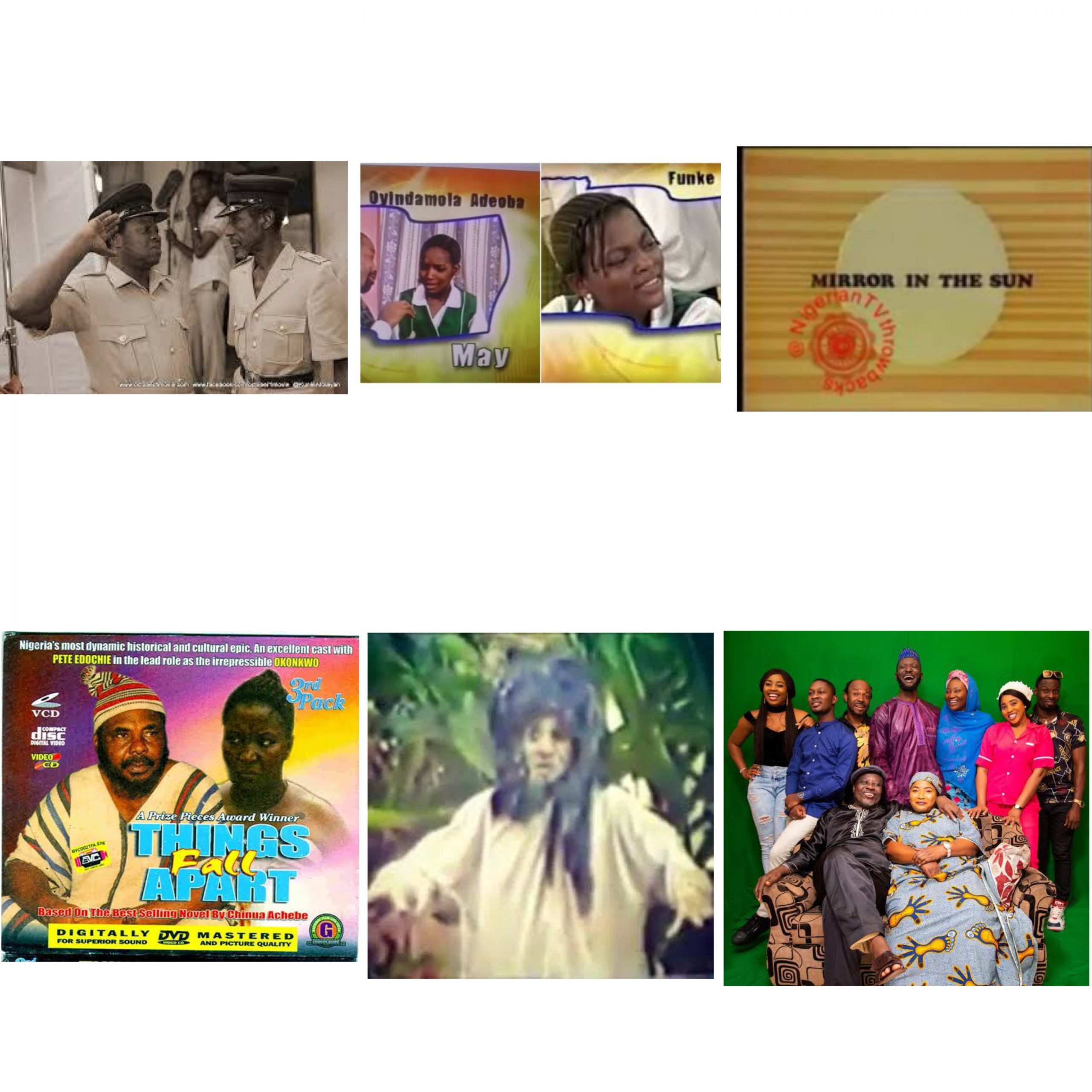(continued from last week)
By Abimbola Mohammed
If you grew up in the 80s, there’s a good chance that you spent at least some of your time watching a soap opera. These melodramatic television programmes were all the rage back then, and it’s easy to see why. They brought families, friends, and neighbors together to share in their collective obsession.
We bring you the concluding part of this nostalgic piece
Things Fall Apart: is a soap opera adapted from the debut novel by the renowned Nigerian author, Chinua Achebe, first published in 1958. It depicts pre-colonial life in the southeastern part of Nigeria and the invasion by Europeans during the late 19th century. It is seen as the archetypal modern African novel in English language and one of the first to receive global acclaim. The novel was later acted as soap opera and shown on Nigeria Television Authority (NTA) Network Service in 1987. The storyline follows the life of Okonkwo, an Igbo man and local wrestling champion who turned down European colonialism and Christian missionaries, his family, and the wider Igbo community.
Mirror in the Sun: is a Nigerian soap opera written and produced by Lola Fani-Kayode in collaboration with Cine kraft Ltd., which was the production company. The show aired on the Nigerian Television Authority network service every Sunday from January 1984 to January 1986. During its run, a total of 52 episodes were aired. The show was popular and successful in Nigeria where it attracted a large TV audience.
The plot of Mirror in the Sun was written by Lola Fani-Kayode who was also the show’s producer and who sometimes directed episodes. Fani-Kayode and the firm, Cine Kraft Ltd, independently developed the concept of the soap in 1983 with the intention of seeking sponsorship from manufacturers of child care products. However, economic challenges faced by manufacturers made the show a tough sell to sponsors.
Cock Crow at Dawn: was a Nigerian edutainment serial that aired weekly on the Nigerian Television Authority (NTA) network in the early 1980s. The project was developed and financed by NTA and United Bank for Africa to promote interest in farming. However, it was criticized by some writers as a propaganda tool for Shagari’s Green Revolution programme.
Samanja: was a hilarious rib-tickling comedy series which actually started airing in 1973 on NTA Kaduna as well as Radio Kaduna. Samanja was so popular that it finally got a slot on national airtime and quickly became the favourite of many with the language changing from Hausa to pidgin to accommodate its audience who did not understand Hausa.
Willy Willy: was Nigeria’s most popular scary/ horror movie. The scary tone always leaves huge goosebumps around one’s neck. The name of this Horror series was Hot Cash (not Willy Willy). Willy (William) was the name of the boy servant who was killed by his master for money-making ritual on the urging of his cantankerous wife (Nchelem).
I Need to Know: was a Nigerian family-oriented television series aired on the NTA network. It starred Funke Akindele as Bisi, Uche Ejiogu as Ngozi, Taiwo Lesh as Hauwa and Amaka Egwuatu as Essien and was sponsored by the United Nations Population Fund as part of its support to the Federal Government’s effort to provide information, education and communication on adolescent health issues in the fourth Country Programme of Assistance (1997–2002). The United Nations Population Fund (UNFPA) country office in Nigeria supported the production of the television series on adolescent reproductive health.
Ripples: came in the 1990s and was produced by Zeb Ejiro who is famed as the Sheikh of Nollywood and ran for five uninterrupted years. Ripples featured the likes of Alex Usifo Omiagbo, Yetunde Idowu, Late Sam Loco Efe, Richard Mofe-Damijo, Larry Williams, Barbara Soky, Keppy Bassey Ekpenyong, Segun Arinze, the late Jennifer Emeka-Ossai, Olisa Adibua, and Genevieve Nnaji and was a delight to watch whenever it aired every Friday between 8:30-9:00 pm. The TV series also gave Genvieve Nnaji her first TV role. But it was Ngozi Nwosu who played the role Madam V-Boot that made the viewers laugh.
I know the readers that are over 40 years old cannot help the nostalgic feeling as they recall the scenes in these soaps depicting the near beatific scenery of our towns and cities. Mostly, can we ever forget the rush to hurry back home by mothers, fathers and children, to join the weekly congregation in front of the tube and watch their favourite soaps with other family members. Those were times when family times truly convey the meaning.






Comment
No comments found.